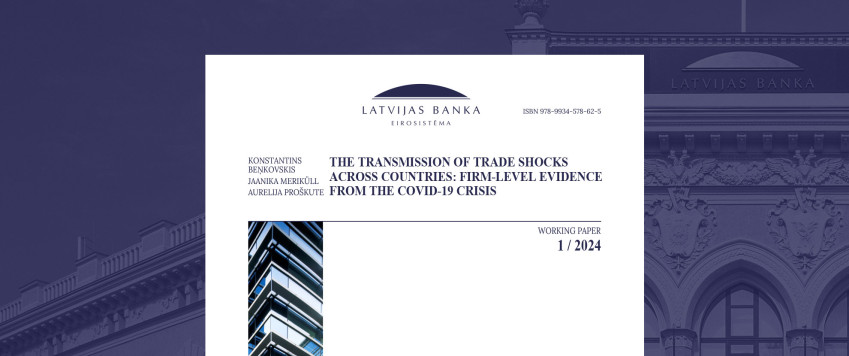The transmission of trade shocks across countries: firm-level evidence from the Covid-19 crisis
Working paper 1/2024

This paper studies the margins and heterogeneity of adjustments to trade shocks by estimating how Covid-19 restrictions affected imports and exports. We use data from Lithuania, Latvia and Estonia on foreign trade at the level of the firm and the partner country and at monthly frequency from January 2019 to December 2020. The focus is on the short-term adjustment and on the first wave of the pandemic. We find that the adjustment to the restrictions mostly occurs through the intensive margin, meaning trade values are reduced rather than trade in cer- tain markets or products ceasing. It is further observed that quantity played a more important role in the adjustment process than prices and that both upstream and downstream restrictions played an equally important role in the decline of foreign trade. It is shown that differentiated products that are difficult to replace are responsible for this adjustment pattern.
Keywords: transmission of shocks, input-output linkages, global value chains, Covid-19, work- place closing
JEL codes: F14, F61, D22
Textual error
«… …»

